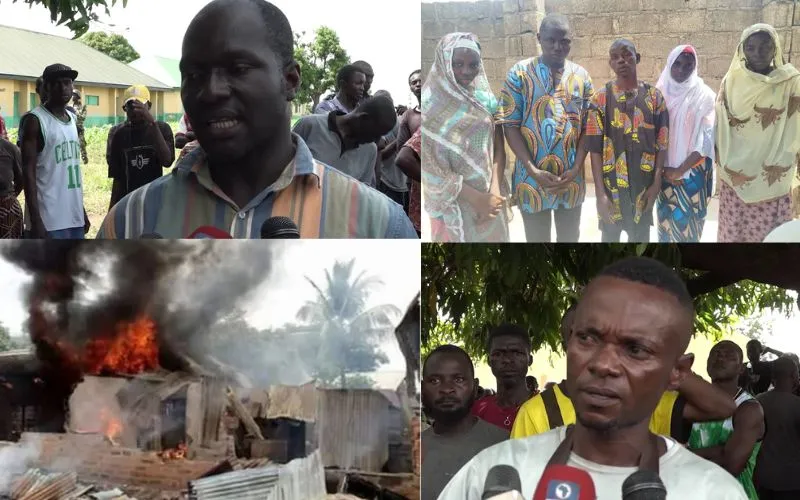Nigeria has been experiencing insecurity since 2009, when the Boko Haram insurgency began with the aim of turning the country into an Islamic state.
Since then, the group, one of the largest Islamist groups in Africa, has been orchestrating indiscriminate terrorist attacks on various targets, including religious and political groups as well as civilians.
The insecurity situation in the country has further been complicated by the involvement of the predominantly Muslim Fulani herdsmen, also referred to as the Fulani Militia.
On June 13, Islamist Fulani militants attacked the town of Yelewata in Nigeria’s Benue State, killing at least 200 persons in what international aid organizations have termed the “worst killing spree” in the Nigerian region.
In the attack that has been widely condemned, with Pope Leo XIV extending his spiritual closeness to victims of the massacre, the attackers reportedly targeted Christians living as internally displaced people (IDPs), setting fire to buildings where families were taking shelter and assaulting with machetes anyone who attempted to flee.
(Story continues below)
In a June 21 interview with ACI Africa, some survivors of the June 13 attacks shared their ordeal.
“Fulani herdsmen came into Yelwata East and started firing gunshots. They fired for almost five hours, and though the police put up resistance, the attackers moved toward Yelwata New Market where they slaughtered more than a hundred persons,” one of the survivors, Maxwell Ayua, recounted.
He added, “My wife, my brother, and my four children—all were killed in the market area. They burned some of our people in stores – some shelters had over 50 persons, and all were burned down. Others were slaughtered and burned to ashes. Three people were killed in one house alone.”
Maxwell said the attackers were identifiable, saying, “They were four in number, and they are Fulanis. I saw them.”
Another witness, Matthew Nlan, dismissed narratives that attempt to downplay the ethnic dimension of the violence. He lamented, “It’s not about profiling. The Sultan of Sokoto reacted when 11 alleged hunters were killed in another State. The Northern Elders Forum spoke. Governors rose in solidarity. But now, with over 200 dead in Benue, the North is quiet.”
Matthew said the attacks are part of a broader agenda. For him, “It’s not about open grazing anymore. It’s about full occupation. Fulani families now live in our homes. Their children crawl on the floors of houses they didn’t build, and we are standing on the dead bodies of our mothers, fathers, and siblings. We have become IDPs in our own homeland.”
He called on the government to act, saying, “If the President cannot act decisively in the face of this horror, then he is either unfit or unwilling. And if the Governor feels helpless, he should resign. Nigerians are tired of politicians making empty promises while bodies pile up.”
Abah Anthony John is a Nigerian Catholic journalist with passion for Church communication and media apostolate. He holds a bachelor’s degree in mass communication from Benue State University, Makurdi in Benue State Nigeria. He has a background in print, electronic and multi-media production.





